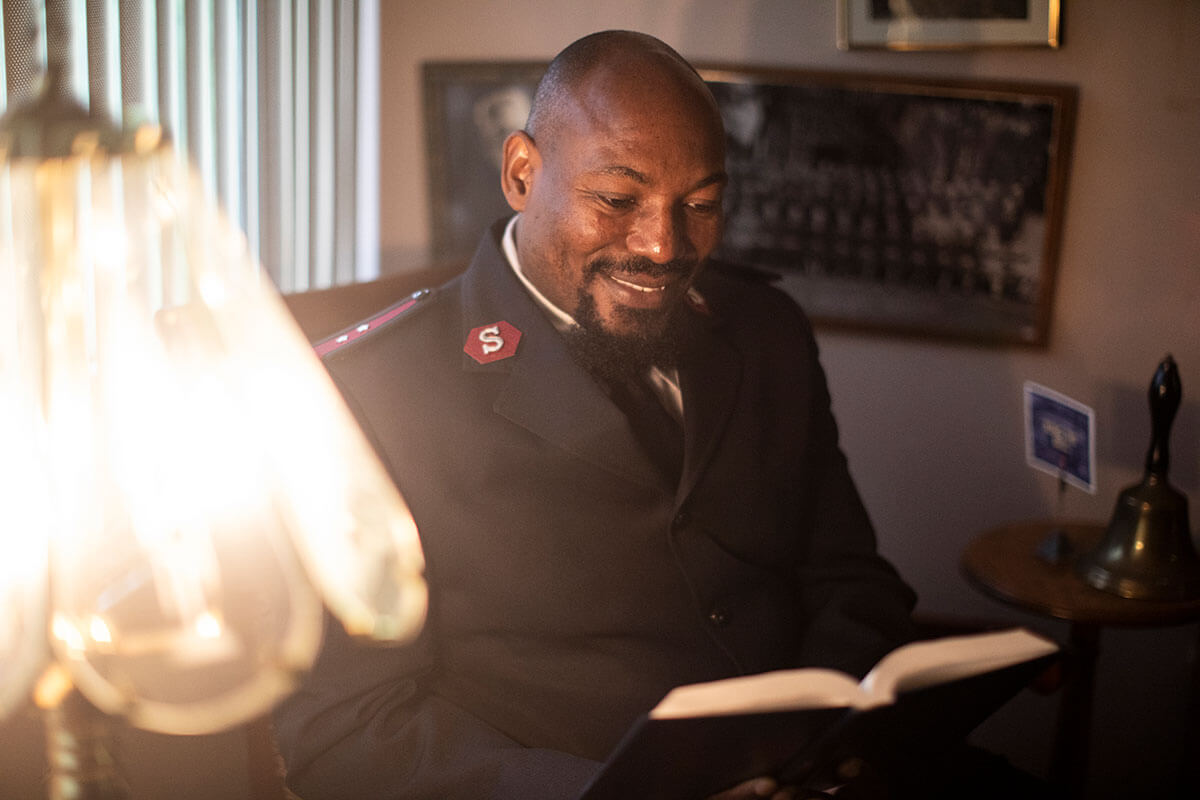In Search of Service
by Hugo Bravo

Captain Stanley Pierre-Louis, corps officer at the Jamaica Citadel Corps in New York, talks about his early goal of serving in the Haitian military, the importance of self-care as a pastor, and seeing the work of the Salvation Army “Slum Sisters” through his wife, Captain Ermance Pierre-Louis.
I always had a passion to serve. When my father and stepmother had their own children, their attention shifted from me, my father’s first child, to my younger siblings. This did not bother me. I felt it was my duty to be in service to those new babies. As a teen, I wanted to join the Haitian military to serve my country. But the year I graduated high school, the government disbanded the military. Years later, my wife and I brought our family to live in New York. We came across The Salvation Army giving away boxes of food, and we were given one. I knew about the good the Army did, but felt serving for them was beyond my potential and English skills. So I volunteered to pack food boxes. When we were invited to learn about becoming officers, I could not believe The Salvation Army would consider us for such a role. But this was about what God wanted. He knew I still had the fire in my heart to serve.
In late 2020, an elderly woman, a regular at the Jamaica Citadel, stopped showing up to church. We were concerned, so we went to visit her to pray and bring tea. We learned from her son that she was wheezing, unable to walk, and had soiled herself lying in bed. She had taken a COVID-19 test but did not want to go to the hospital until she got her results. She would only see my wife, who looked at me and said, “I have to clean her.” In that moment, I saw my beautiful wife as one of The Salvation Army’s Slum Sisters, who would visit homes, sometimes late at night, to clean and take care of sick children or their parents. Finally, the woman was taken to the ICU, where it was confirmed she had COVID. She is alive today and still comes to the corps. She says she prays for us and owes us something for being there for her. Of course, she doesn’t owe us a thing, but we’re grateful for her prayers.
I keep up my spiritual health by reading the Bible and living the Word of God. But our physical bodies are also temples of the Lord, and He has entrusted us to take care of them. If I cannot take care of myself, how can I take care of others? My favorite exercise is bike riding. Our family lives in Franklin Square, Long Island, which has a very big bike community. I taught all my children to ride bikes, so they could ride with my wife and me. Being an Army officer is not about sitting behind a desk all day. We are walking from place to place, meeting the community, lifting boxes, and representing The Salvation Army.
At our first assignment in Spring Valley, N.Y., I got a 1 a.m. phone call from a corps family. Their son, a 25-year-old man with mental issues, was very sick and would not talk to anyone but his pastor. When I arrived, he was scared and distrustful of stepping inside the ambulance his worried family had called. I thanked him for his trust and assured him that he’d be safe. He eventually agreed to go to the hospital and stayed for three months. That was a long, tiring night, but that man’s life and well-being was my only concern. I want anyone who needs me to disturb me at any time. My own discomfort means nothing to me if I can bring comfort to others.
Jeremiah 29:11 says, “‘For I know the plans I have for you,’ declares the Lord, ‘plans to prosper you and not to harm you, plans to give you hope and a future.’” I had a very specific plan for a life in the military. I could have been facing dangerous Haitian gangs. I would have been taught to kill, or I may have been killed myself. God had a better plan. As a Salvation Army officer, I’m not in the business of taking lives. I’m in the business of saving souls.

